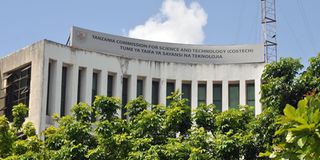Prime
Strategic investments propel Tanzania’s scientific ascent

What you need to know:
- This growing reputation has been underscored by the recent rankings in the AD Scientific Index for May 2025, which assessed over 4,000 Tanzanian scholars.
Dar es Salaam. With a renewed emphasis on research and innovation, Tanzania is accelerating its ascent on the global scientific stage, backed by strategic investments from both government and academic institutions.
In what experts describe as a turning point for the nation’s intellectual capacity, the country is now being recognised not only as a consumer of knowledge, but increasingly, as a key contributor to global scientific progress.
This growing reputation has been underscored by the recent rankings in the AD Scientific Index for May 2025, which assessed over 4,000 Tanzanian scholars.
The list features top researchers whose work spans public health, agriculture, environmental science, and more—fields vital to both national development and global sustainability.
Among the notable names is Prof Mecky Matee, a public health expert from Muhimbili University of Health and Allied Sciences (MUHAS), who tops the Tanzanian list with an H-index of 57. His research on infectious diseases and antimicrobial resistance is cited globally, influencing health policies beyond borders.
Close behind is Prof Patrick Ndakidemi of the Nelson Mandela African Institution of Science and Technology (NM-AIST), whose research on sustainable farming and soil science is driving agricultural transformation across East Africa.
Also featured is the late Prof Rudovick Kazwala, a veterinary scientist whose legacy continues to shape Tanzania’s fight against zoonotic diseases.
The rising profile of Tanzanian scientists is not accidental—it reflects a strategic shift in national policy. The ministry of Education, Science and Technology has significantly expanded its support for research through funding, recognition, and institutional frameworks.
One of the ministry’s priorities in the 2025/26 budget is to continue strengthening the country’s capacity in research, the application of science, technology, and innovation to contribute to sustainable development.
According to the minister for Education, Science and Technology, Prof Adolf Mkenda, the government has granted 489 research permits to both local and foreign researchers conducting studies in fields such as social sciences, natural sciences, medical and health sciences, agriculture, and veterinary sciences
Additionally, it has introduced a loan facility for researchers and innovators through the National Fund for the Advancement of Science and Technology (MTUSATE) in collaboration with CRDB Bank.
“The government has continued to support 784 research projects through higher learning institutions in areas such as education, health, environment, agriculture, governance, land, construction, architecture, sustainable industrial economy, climate change, and water harvesting methods,” said Prof Mkenda, as he requested the parliament to approve Sh2.44 trillion for the 2025/26 budget.
Prof Mkenda noted that the government has also introduced the Research Excellence Award, an annual accolade given to scholars whose work appears in high-impact journals. This initiative, currently offering Sh50 million to each winner, is poised for expansion
“We are in the process of reviewing the award structure to make it more competitive and better reflect the impact these scientists are making,” said Prof Mkenda. “Our vision is to build a knowledge-driven economy, and research is central to that journey.”
Even so, Prof Ndakidemi, also a Member of Parliament for Moshi Rural constituency says, “Despite these successes, our Scientists face substantive challenges, including limited resources, inadequate infrastructure, and limited national recognition.”
To change these dynamics, he suggests that “there is a need to invest in their research and development, create opportunities for partnerships, and amplify their work through media and storytelling.”
This he believes would go a long way in ensuring that their contributions are not only appreciated but also contribute to meaningful change in the country, African continent and the world at large.
AD Scientific Index: A wake-up call?
The AD Scientific Index, which evaluates scientists based on productivity and citation metrics, ranked Tanzania among Africa’s most improved countries in terms of scientific output.
“This shows the world that Tanzania is serious about science,” said former senior fellow at the Tanzania Commission for Science and Technology (COSTECH), Ms Amani Pellangyo. “We’re seeing the results of long-term capacity-building, increased investment, and strategic international partnerships.”
However, she adds a note of caution: “Our challenge now is converting this knowledge into tangible policies and commercial applications. Research shouldn’t just stay in academic journals—it must reach the field, the clinics, and the classrooms.”
Despite the gains, structural hurdles remain. Many Tanzanian researchers operate with limited access to modern labs, data analytics tools, and consistent funding streams.
“There is a clear mismatch between our scientific talent and the infrastructure available to support it,” said a research expert, Dr Tony Mushi.
“We need long-term investment—not just in people, but in systems that sustain innovation.”
Dr Mushi also emphasised the role of storytelling in elevating science: “The media must play its part in shifting perceptions. Tanzanians need to see science as a career path, not just a niche for academics.”
Tanzania’s scientific progress is further supported by robust regional and international collaborations. Institutions like NM-AIST and MUHAS are actively engaged in cross-border research with European, American, and Asian counterparts.
These linkages offer both knowledge exchange and opportunities for scaling innovations.
The momentum may have started with rankings and recognition, but Tanzania’s true breakthrough lies in its growing belief in science as a national tool for transformation. With strategic investment, policy coherence, and continued collaboration, the country is not just catching up—it’s stepping ahead



